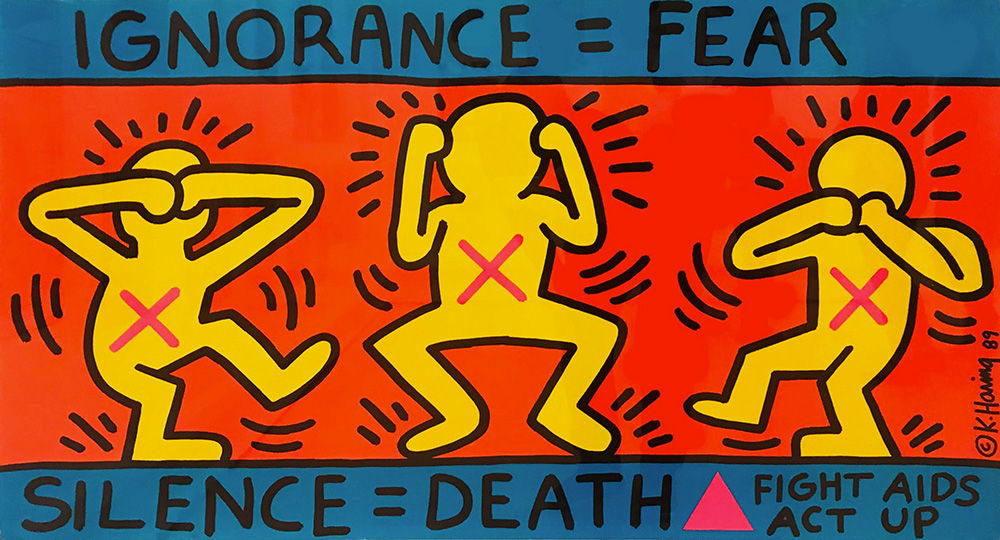
Forty years ago, the first cases of AIDS were reported and changed our lives. We remember those we’ve lost, lift up long-term survivors and
acknowledge the progress made in the past four decades.
A Timeline of HIV and AIDS

Forty years ago, the first cases of AIDS were reported and changed our lives. We remember those we’ve lost, lift up long-term survivors and
acknowledge the progress made in the past four decades.
A Timeline of HIV and AIDS
As we reflect on 40 years since the first reported cases of HIV/AIDS, what stands out most is the resilience of our communities in the face of an epidemic that quite literally reshaped the world. It’s as inspiring as it is heartbreaking to look back upon the advances made since 1981: inspiring because we’ve made it so far, but heartbreaking because so many weren’t able to make it here alongside us.
Being part of the Bay Area public health landscape is a point of pride, as this region has helped to shape the landscape of care as well for HIV+ individuals as well as the development of effective interventions for HIV- individuals. It is because of the blood, sweat, and tears of our activists, artists, and agitators that we’ve made it so far. End Hep C SF stands on the shoulders of the work of our partners in HIV treatment and prevention, and it is because of their teachings that we have been able to move forward in our goal of hepatitis C elimination.
On this complex anniversary, we at End Hep C SF lift up those in our shared fight to end the epidemics of HIV/AIDS, STIs, and viral hepatitis. We are proud to be fighting alongside you.
I am incredibly thankful for everyone in the HIV Community–patients, providers, advocates, researchers and anyone who believes in the cause and who cares. Hope lives & breathes, as we all continue to offer our best in this fight. For the greatest of these is love.
Over the last 40 years, our collective history of HIV/AIDS has been woven from countless stories, heard and unheard. Stories of loss and resilience, of suffering and triumph, of rage and activism. And there are lessons about stigma, equity and justice that we are still learning. On this anniversary, I am hopeful …
I am hopeful because we have the tools to effectively treat and prevent HIV infection. Science has proven this.
I am hopeful because we are united in the powerful vision of “Getting to Zero” – Zero new Infections, Zero HIV-related Deaths, and Zero Stigma and Disparities for people affected by HIV.
Most importantly, I am hopeful because of our people. Care and service providers who dedicate yourselves each day to facing the challenges that come with pursing this vision. People living with HIV, who show unbelievable courage in living your best lives in the face of adversity. And our strong community, dedicated to supporting each other, sharing our struggles and celebrating our successes – TOGETHER.
For the past 40 years, San Francisco has been a worldwide leader of HIV/AIDS care and prevention. As we emerge from the COVID-19 pandemic, we must continue our fight against HIV/AIDS and work to eliminate the health disparities that impact our must vulnerable communities. I am confident we can continue our successful efforts to address disparities and provide high-quality care on our path to getting to zero new HIV infections, zero HIV-related deaths, and zero stigma in our city.
As the City of San Francisco faced down the COVID-19 pandemic we drew heavily from the lessons we learned in the fight against HIV/AIDS. Our collective memory, our culture of compassion, our adherence to scientific guidelines, and our relationships with trusted community partners, helped us save countless lives. As someone who spent much of his career working on HIV prevention and championing research and awareness, I appreciate how so much of what we have learned from the HIV/AIDS response has contributed to the broader field of public health. And, I long for the day when we can put an end to the HIV/AIDS pandemic. While we still have work to do, Getting to Zero is getting us closer to that day. For that I am proud and grateful.